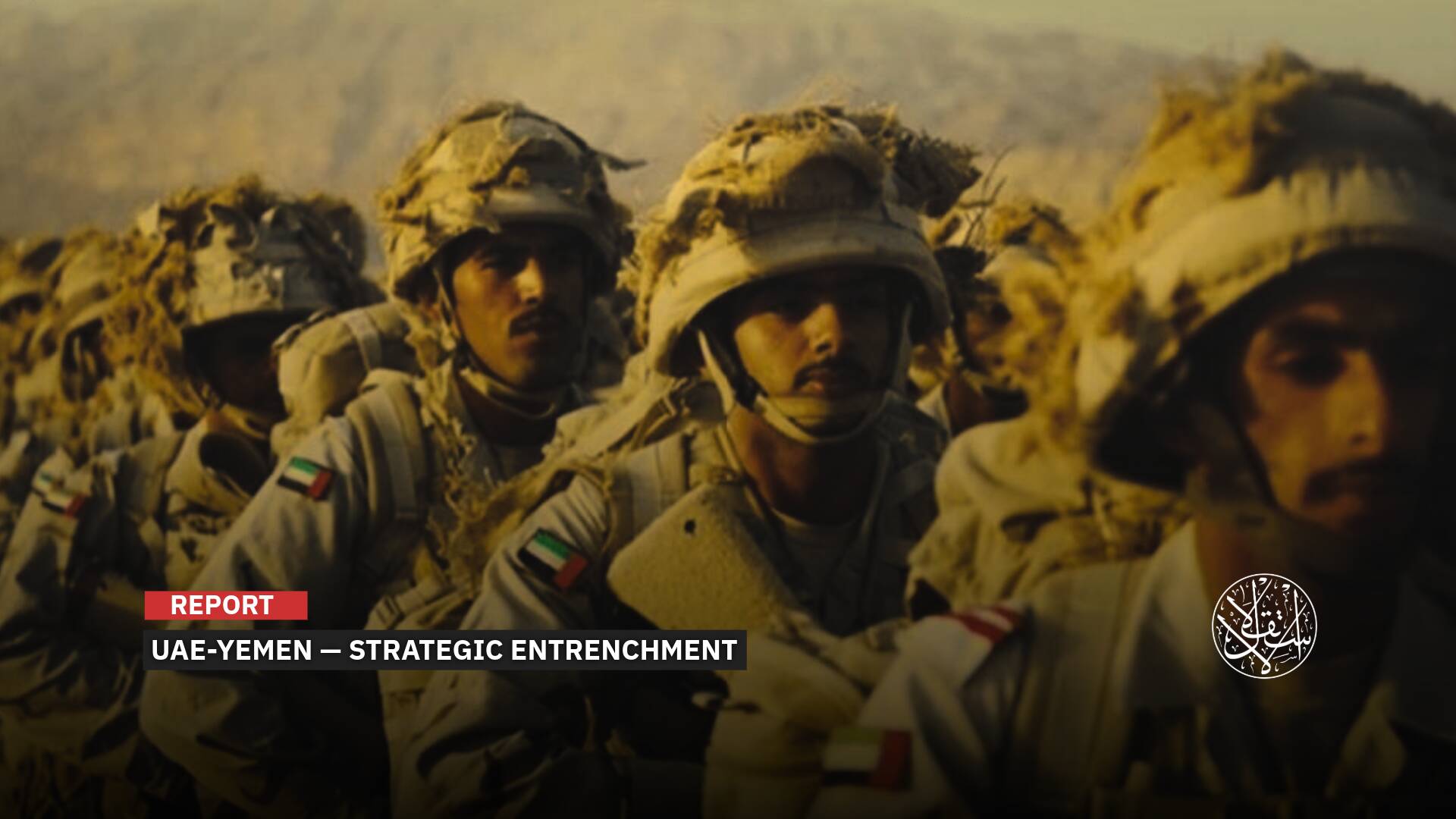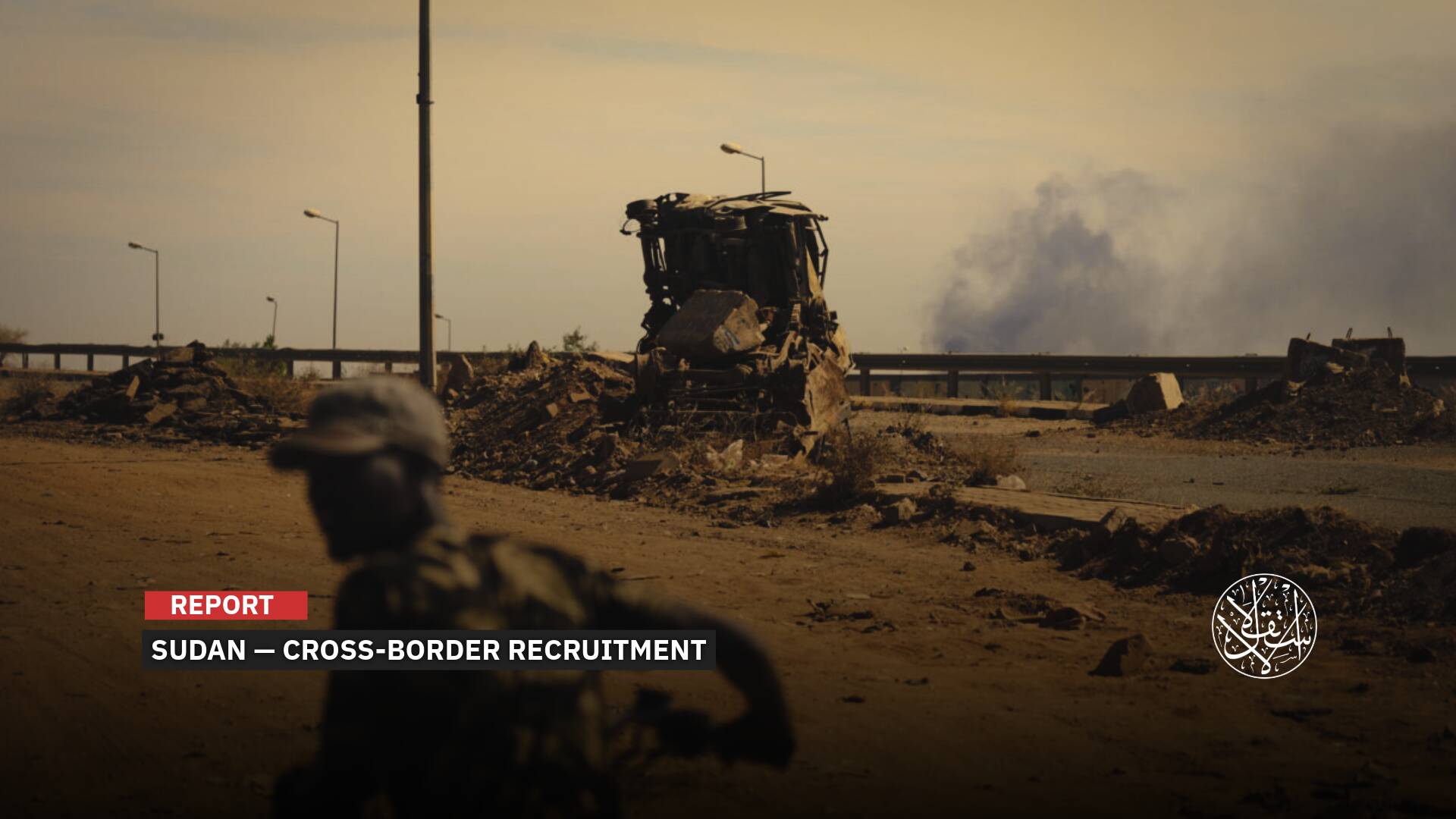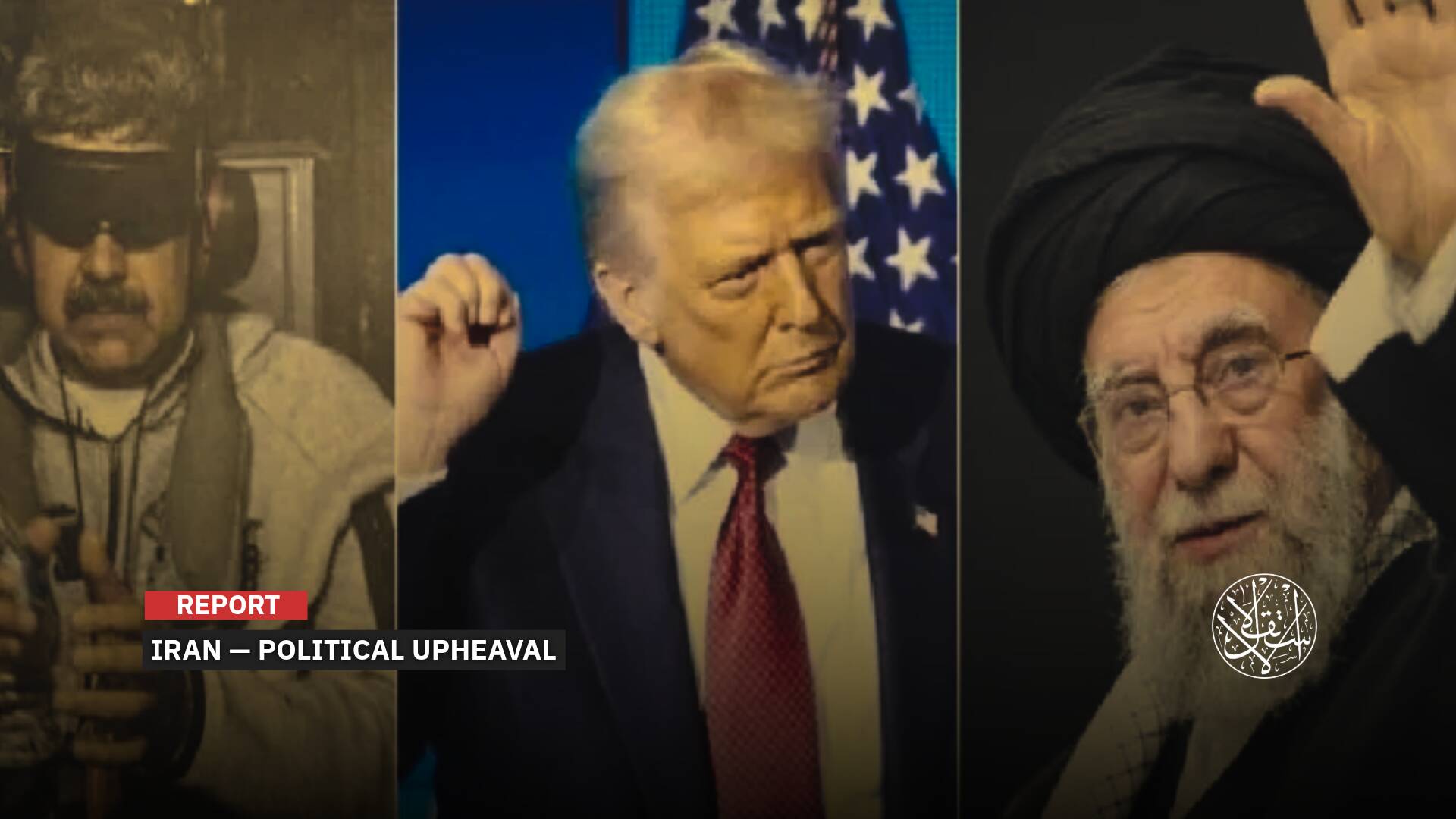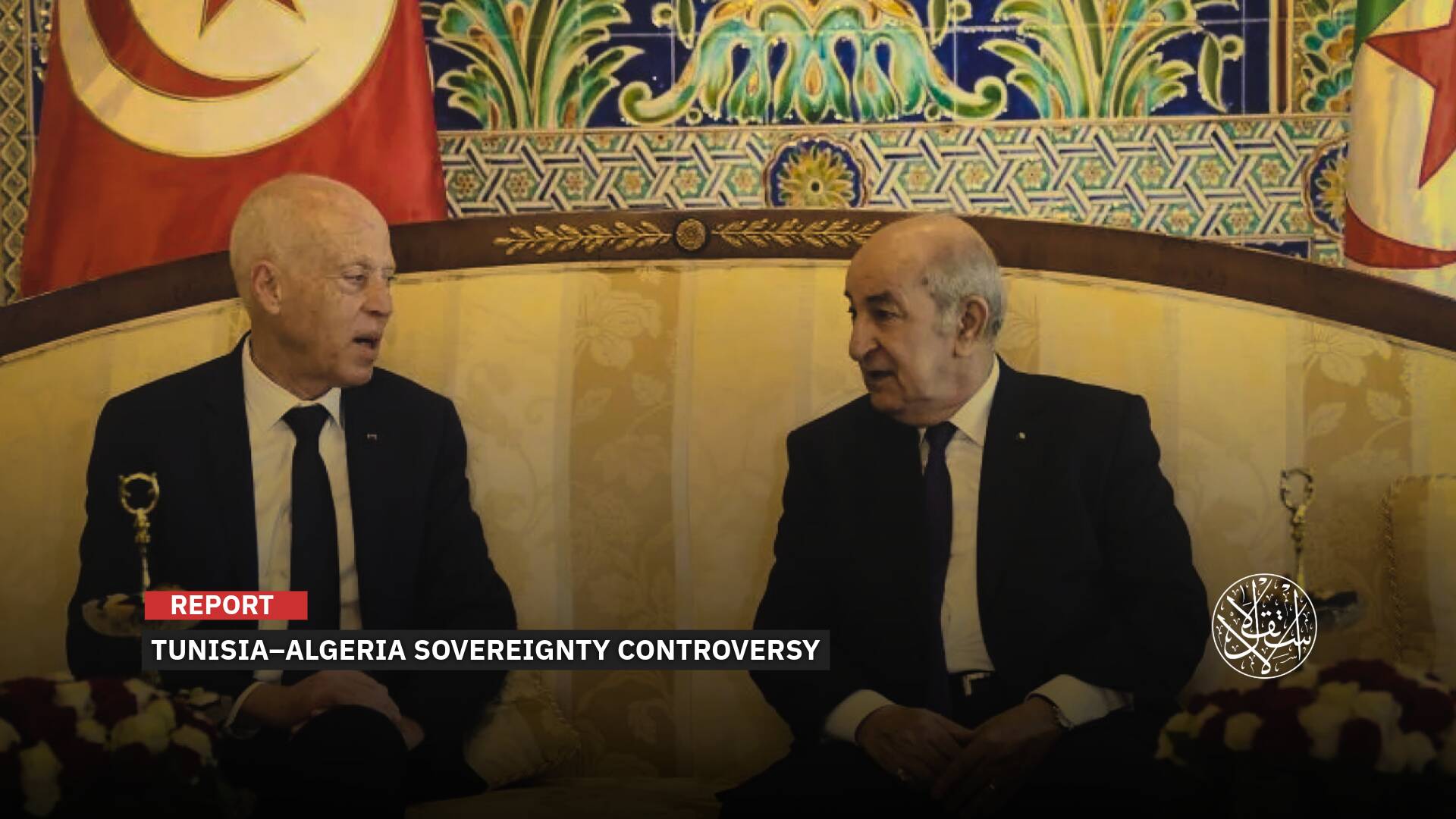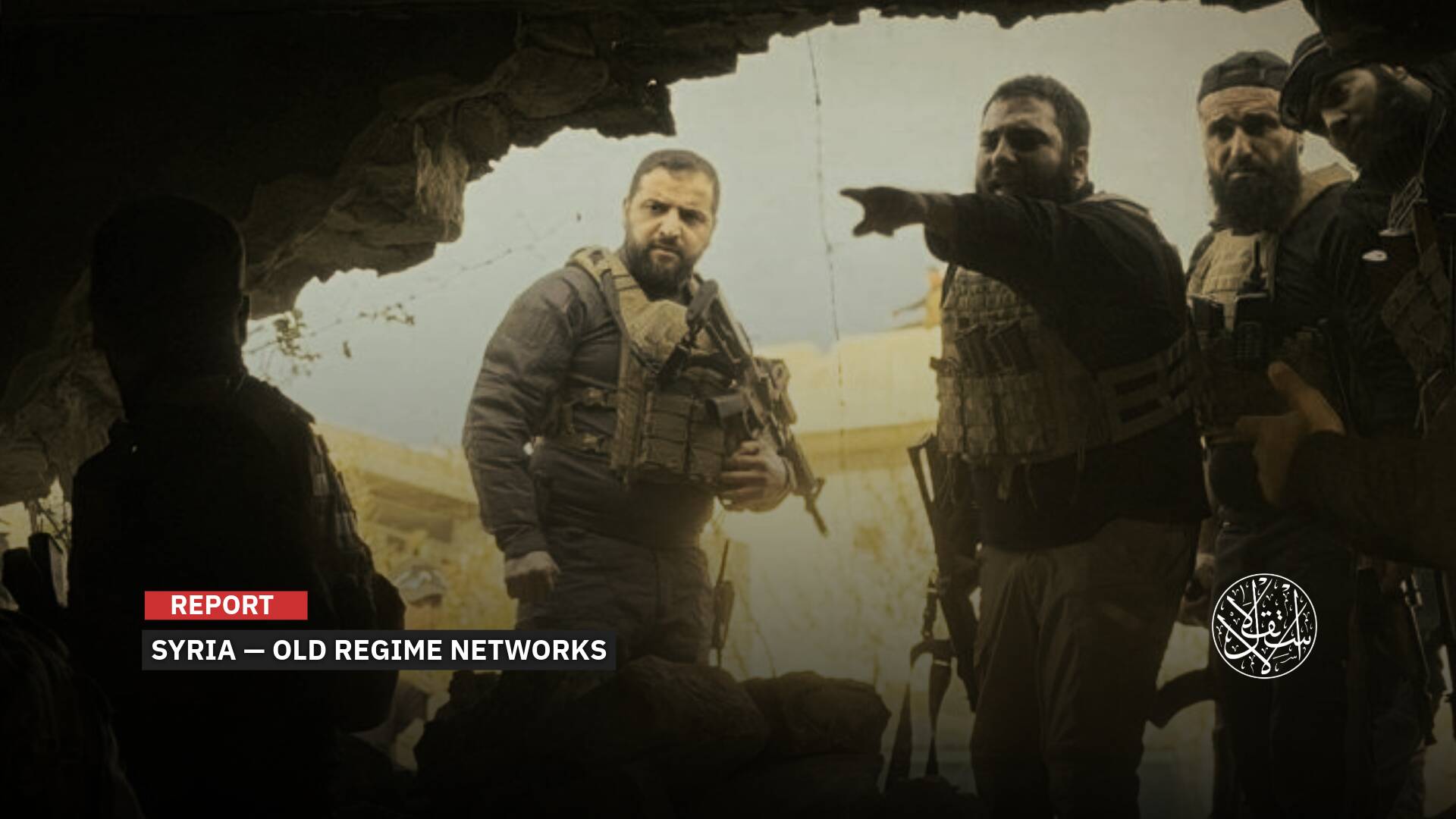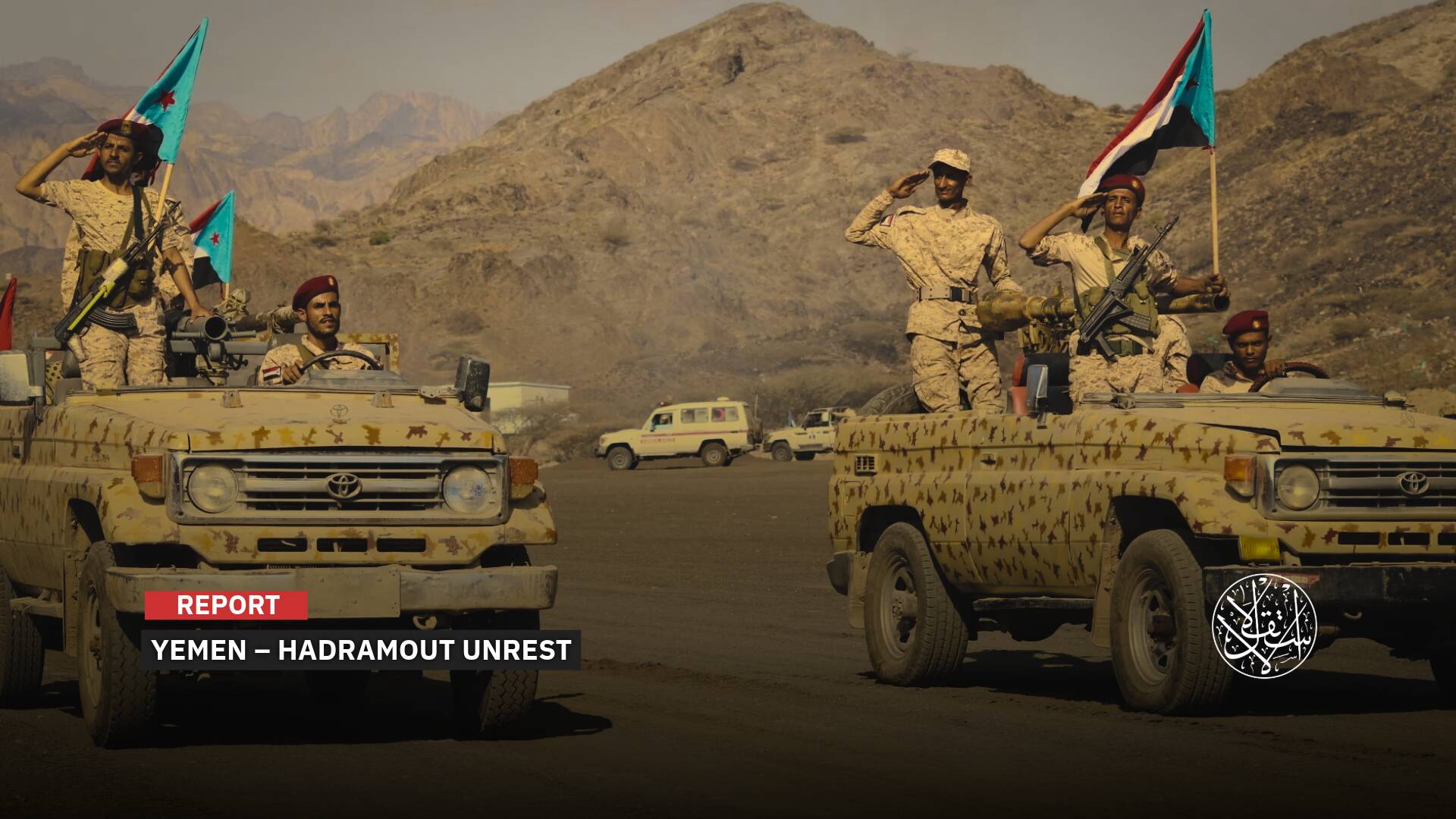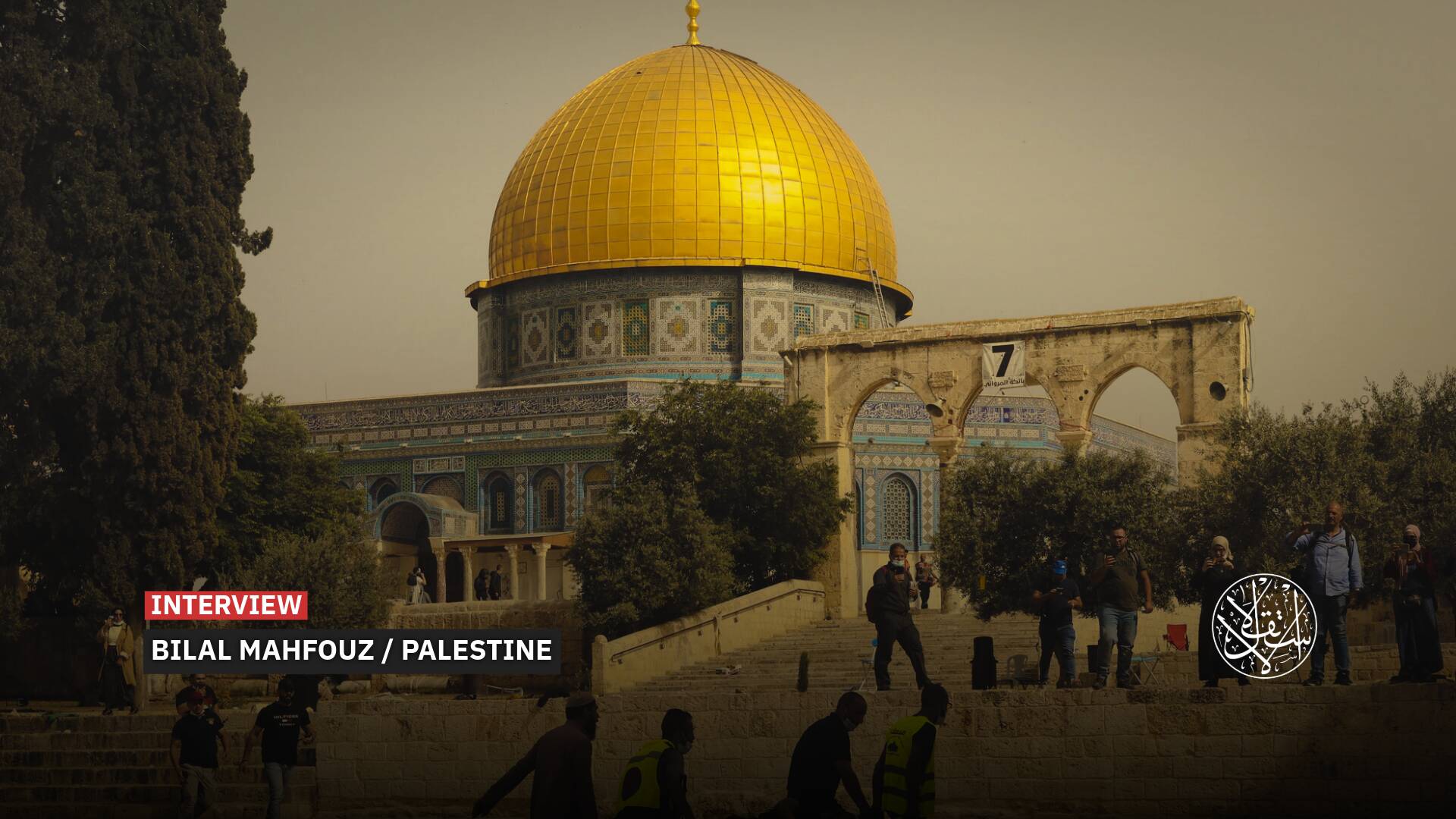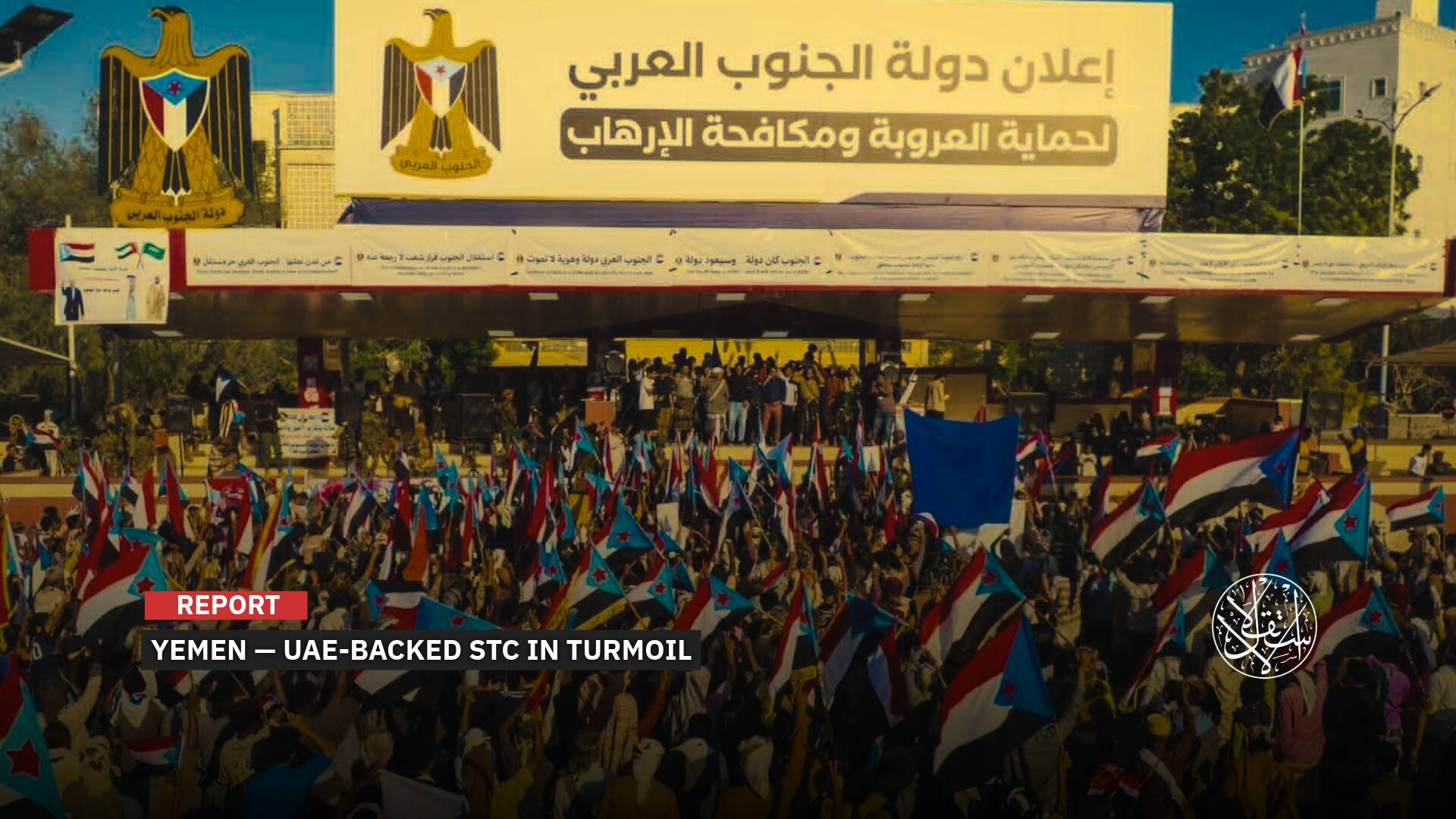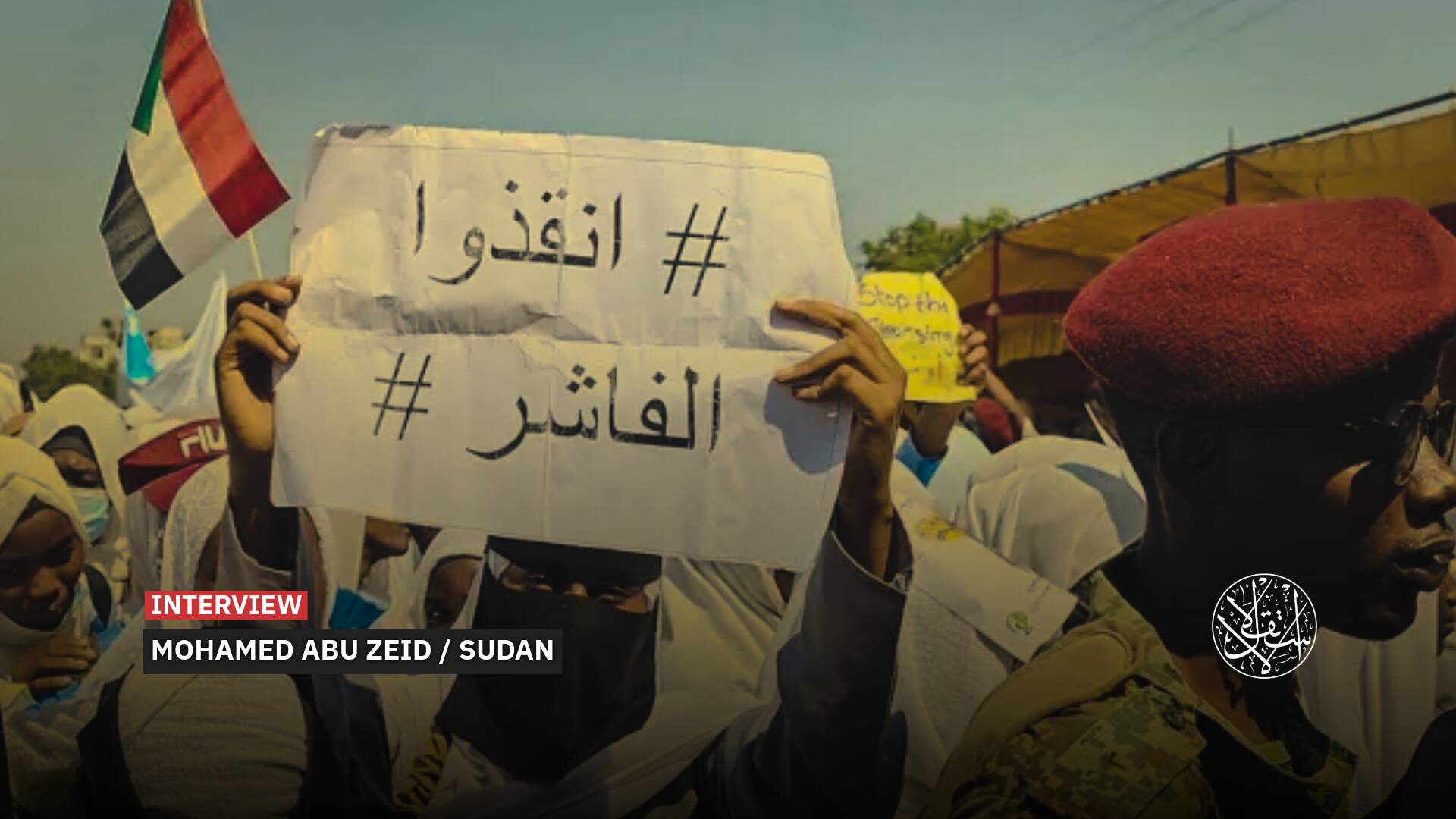Despite Its Alliance with the Sudanese Army: Why Did Egypt Arrest the al-Baraa Islamic Forces Commander?
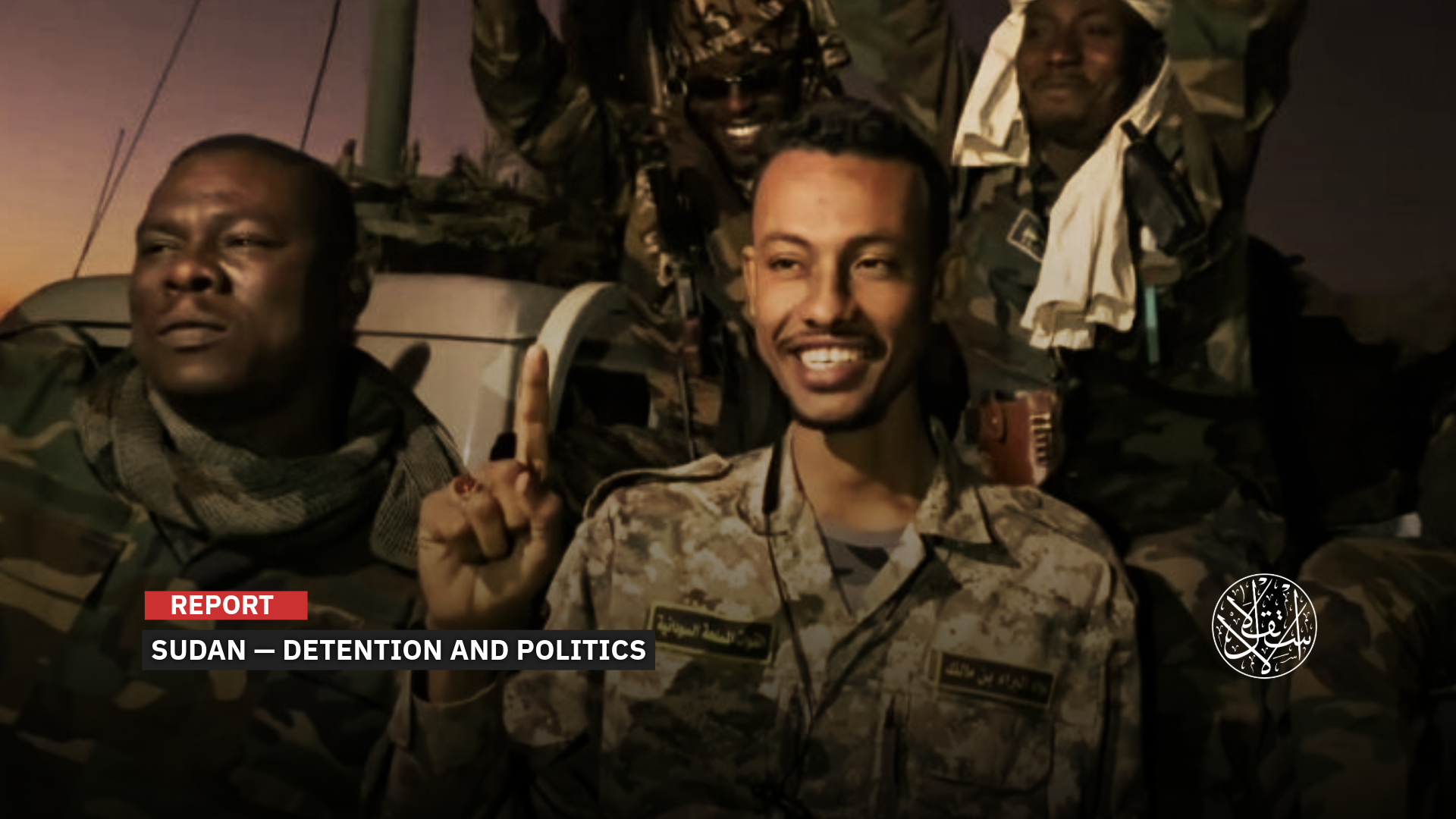
Even after the release of al-Misbah Abu Zaid Talha, speculation about his detention continued.
Amid mounting fears in Cairo that Sudan’s Islamists could ride the war back into power, Egyptian authorities arrested the commander of the al-Baraa bin Malik forces, Musbah Abu Zaid Talha, who had been fighting alongside the Sudanese army against the Rapid Support Forces militia.
The detention of the Sudanese commander sparked a flurry of speculation. At first, it was explained away as either the result of “malicious complaints” from rival Sudanese factions backing the RSF militia, or as a supposed move to “protect him from an assassination attempt” by supporters of Mohamed Hamdan Dagalo, known as Hemedti.
But in a statement issued on August 10, 2025, after his release by Egyptian authorities following nearly a week in custody, Abu Zaid confirmed he had indeed been arrested.
He credited Sudan’s army chief Abdel Fattah al-Burhan with securing his freedom, while seeking to soften the episode by thanking Egypt “for his treatment and for hosting his family.”
Notably, Abu Zaid’s statement spoke of being “cleared of charges and false accusations” in Egypt, a phrasing that echoes a similar episode in Saudi Arabia, where he was also briefly detained during a visit in June 2024 before being released, reportedly over his participation in gatherings with Islamists in the kingdom.
Analysts suggest that the arrests in both Cairo and Riyadh were likely driven by the regimes’ shared concern over the resurgence of Sudanese Islamist influence, and their potential role in governance once the war, in which they played a decisive part, winds down.
The al-Baraa bin Malik Brigade, aligned with the Sudanese Islamic movement and commanded by Abu Zaid, has been fighting alongside the army against the RSF militia, operating alongside other popular militias supporting the armed forces.
The Story of the Arrest
Sudanese sources told Al Estiklal the story of Abu Zaid’s arrest and release, the commander who has been fighting alongside the Sudanese army.
On August 4, 2025, after arriving in Egypt for treatment of a previous injury sustained in a drone assassination attempt allegedly orchestrated by the RSF militia, and to visit his family, who have been living in Egypt since the outbreak of the war in Sudan in April 2023, Abu Zaid was detained at his home.
He had been greeted ceremoniously by Sudanese residents in the famed Faisal district of al-Haram, in southern Cairo, where many displaced Sudanese now live.
The display reportedly alarmed Egyptian authorities, already on high alert in a neighborhood known for its unusually dense gatherings and crowds.
The commander of the al-Baraa bin Malik Brigade also made a point of visiting Ramses train station in central Cairo to bid farewell to Sudanese returning home, in coordination with the Sudanese army and Egyptian authorities.
He was seen waving his staff, and some of the returnees posed for photographs with him.
A Sudanese source told Al Estiklal that Abu Zaid, “as a young and enthusiastic commander, did not take into account the sensitivities of the situation in Egypt. He moved among his followers as he would in Sudan and attended gatherings of Sudanese whom the Egyptian authorities consider supporters of the Islamist current in Sudan.”
His actions alarmed Egyptian security forces, who detained him over concerns about his activities and his affiliation with the Islamist movement close to the Muslim Brotherhood, which is banned under the head of the regime Abdel Fattah el-Sisi’s regime, the sources said.
The Sudan Tribune reported that Musbah Abu Zaid was taken from his residence in the el-Agami district of Alexandria by security personnel whose identities remain unclear, and his family was not informed of the reasons for his detention.
Although he is affiliated with the Sudanese army and fights alongside it, Abu Zaid was transferred to an unknown Egyptian security facility and questioned about his activities in the country.
Following intervention by the Sudanese army, including calls from Sovereignty Council chief Abdel Fattah al-Burhan and several members of the military council in Khartoum to Egyptian authorities, he was moved again, possibly to a site controlled by Egyptian intelligence or the military, before being released to return to his home and the hospital where he had been receiving treatment for his previous injury.
Egyptian authorities allowed Abu Zaid to resume a normal life in Cairo and continue treatment at the hospital before he announced that he had been discharged and would return to Sudan.
However, informed sources told the opposition newspaper al-Tayyar on August 10, 2025, that Egyptian authorities had issued a decision to deport Abu Zaid to Sudan following his release, declaring him “undesirable on their soil.”
The Sudan Tribune reported that a senior member of the Sovereignty Council contacted Egyptian officials to clarify the situation, while a high-ranking Sudanese official engaged in intensive communications with influential figures in Cairo to determine Abu Zaid’s fate, the reasons for his detention, and to expedite his release.
It was confirmed that Abdel Fattah al-Burhan and his deputy Yasser al-Atta closely followed the circumstances of Abu Zaid’s detention, while the head of the army’s Defence Industries Authority, Mirghani Idris, also took a keen interest in the case.
Following his release, Abu Zaid said he was receiving treatment in hospital and posted on his Facebook page to thank “Egypt, the Land of the Nile, its government and people, who have hosted my family for two years in safety and security.”
“Egypt has provided me today with full, exceptional medical care in its best hospitals, and I reaffirm our commitment to maintaining the brotherly and strategic relationship between the peoples of the Nile Valley, so that we can achieve further cooperation and shared victories together,” he said.
He acknowledged, however, that “Egyptian authorities briefly detained me,” describing it as “a routine procedure any country would take to clarify the facts.”
The detention, he explained, followed “false reports orchestrated by Sudan’s enemies and those who dream of breaking its will, aimed at harming my reputation and tarnishing the image of our armed forces and the Rapid Support-aligned al-Baraa bin Malik Brigade.”
He confirmed that he had been questioned, saying, “The investigation fully cleared me of any wrongdoing, and I was allowed to resume my normal life in Egypt while continuing my hospital treatment.”
To underscore Abdel Fattah al-Burhan’s involvement, Abu Zaid thanked the Sovereignty Council chief “for his stance, personal attention to the matter, and repeated communications to follow up.”
He also expressed gratitude to Lieutenant General Yasser al-Atta, a member of the council, and Lieutenant General Mirghani Idris, “who took a keen personal interest in the case, even extending support to my family, as well as to General Sabir, director of military intelligence, and officials of the General Intelligence Service.”

Other Stories
Following news of his arrest, several explanations emerged, including speculation that Abu Zaid had taken part in an unauthorized religious activity, in violation of Egypt’s residency rules, which prohibit political and union gatherings without prior permission.
Other reports suggested his detention coincided with news of an Islamist protest outside the Egyptian embassy in Port Sudan, a demonstration officially disavowed by the al-Baraa bin Malik Brigade’s Red Sea division.
Members of the brigade had publicly threatened to stage protests outside the embassy to demand the release of their commander.
Supporters of the al-Baraa bin Malik Brigade became active across social media under hashtags such as “WeAreAllAl-Misbah” and “FreeAl-Misbah.”
These groups called on the army’s commander to intervene urgently to secure Abu Zaid’s release, citing his fragile health as incompatible with detention.
Ali Salah al-Din, a brigade leader, wrote on his Facebook page that “Abu Zaid is now spending his sixth day in Egyptian security custody, with no explanation from the authorities or action from the Sudanese state, and his health is deteriorating.”
On August 7, 2025, the newspaper al-Rakoba went further, citing a “senior Egyptian security source” to claim that Abu Zaid had been detained over alleged involvement in supplying weapons to Hasm, the armed wing of the Muslim Brotherhood, for the purpose of carrying out terrorist operations in Egypt.
Other sources suggested that “he was not arrested but moved to a safe location for his protection after Egyptian security services uncovered a plot to assassinate him inside Egypt by agents loyal to the Rapid Support Forces militia, prompting Egyptian intelligence to relocate him and bring his family to him.”
Even after his release and his announcement that he had been discharged from the hospital, speculation persisted.
On August 11, Sudan Plus reported that Egyptian authorities had taken Abu Zaid from the hospital where he was receiving treatment to an unknown location.
Mohamed Ibrahim Fadl, a member of the al-Baraa bin Malik Brigade, said that Abu Zaid disappeared again after his release in Egypt, being taken from the hospital to an unknown location, with no details disclosed.
Egyptian sources, however, suggested that he had been moved to a secure location this time to keep his whereabouts confidential, ahead of his expected travel to Khartoum following treatment.
Al-Misbah and Power
Since Abu Zaid and his al-Baraa bin Malik Brigade rose to prominence, following significant victories for the army against the RSF militia and their entry into the Republican Palace in Khartoum, Arab capitals hostile to the Islamist current began viewing them warily because of their Islamic affiliations.
The London-based al-Arab newspaper, funded by the UAE and reflecting its perspectives, linked Abu Zaid’s detention in Cairo to “concerns in the Egyptian capital over empowering Islamists after the takeover of Khartoum,” and Egypt’s opposition to “Islamists returning to power.”
On August 7, the outlet suggested that “the arrest of Abu Zaid, close to the Muslim Brotherhood, was a message of Egyptian protest against the growing role of his brigade after it helped the army regain control of Khartoum from the Rapid Support Forces militia.”
The UAE-backed newspaper noted that “the history of the al-Baraa Brigade indicates it is an extension of the Popular Defence Forces, an Islamist-oriented force formed under former president Omar al-Bashir to support the army in its war against the south, prior to secession.”
The brigade’s announcement in July 2025 that it would abandon military operations in favor of civil and service activities, after playing a key role alongside the army in regaining control of Khartoum, alarmed both Abu Dhabi and Cairo, who feared it could signal a return to political activity.
Their concerns were further heightened when Ahmed Haroun, former leader of the dissolved National Congress Party, told Reuters on July 25, 2025, that the upcoming elections “could pave the way for the Islamic movement and the party to return to power.”
Abu Zaid had earlier dismissed such claims, specifically on May 25, 2025, denying reports that the al-Baraa Brigade would be involved in forming the anticipated government and describing them as “a desperate attempt to tarnish the image of the brigade.”
“The brigade is a reserve force supporting the army and does not seek any share of power,” Abu Zaid noted and called for the formation of a government of independent experts and technocrats for a short transitional period to pave the way for free elections once security is restored.


